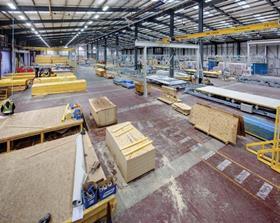- News

All the latest updates on building safety reformRegulations latest
- Focus
- Home
- News
- Focus
- Comment
- Events
- CPD
- Building the Future
- Jobs
- Data
- Subscribe
- Building Boardroom
Peers hear modular the only way to solve housing crisis
By Jordan Marshall2018-04-26T06:00:00

Willmott Dixon’s Tim Carey tells House of Lords inquiry there is not enough traditional resources

The skills crisis has reached a point where there is no alternative to off-site manufacturing, a House of Lords inquiry into whether off-site manufacturing can improve productivity in construction has heard.
Speaking to peers from the science and technology committee, Willmott Dixon national product director Tim Carey said there was simply not enough resources to build houses traditionally.
He said: “The biggest advantage of it [off-site manufacturing] is there isn’t enough capacity out there to deliver projects, especially housing using traditional methods of construction anymore. We are almost past the point of no return.
Already registered? Login here
To continue enjoying Building.co.uk, sign up for free guest access
Existing subscriber? LOGIN
Stay at the forefront of thought leadership with news and analysis from award-winning journalists. Enjoy company features, CEO interviews, architectural reviews, technical project know-how and the latest innovations.
- Limited access to building.co.uk
- Breaking industry news as it happens
- Breaking, daily and weekly e-newsletters
Get your free guest access SIGN UP TODAY

Subscribe now for unlimited access
Subscribe to Building today and you will benefit from:
- Unlimited access to all stories including expert analysis and comment from industry leaders
- Our league tables, cost models and economics data
- Our online archive of over 10,000 articles
- Building magazine digital editions
- Building magazine print editions
- Printed/digital supplements
Subscribe now for unlimited access.
View our subscription options and join our community

















